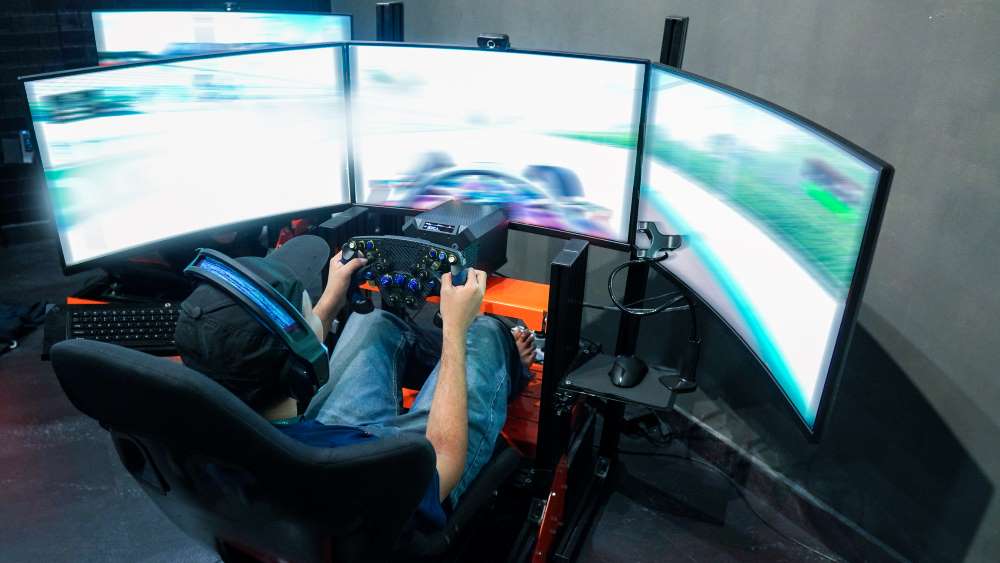
Video games are currently one of the most popular entertainment products in existence. People of all ages and backgrounds enjoy them, and kids under 18 love de-stressing after school or with friends in front of their games.
Many of the most popular games of the past decade have been extremely violent or mature. No game has been more profitable since the turn of the century than “Grand Theft Auto.”
The series is known for its attention to detail and world-building that lets players explore large cities as a criminal who highjacks cars and commits assault and other crimes. The high-quality simulation of the real world the game is trying to depict lets kids become more educated about things they are passionate about like the sports cars in the game.
Driving a fancy vehicle in the game may be a good opening to talk to kids about the real-world requirements that go into owning one of these cars, like Corvette models and GTO insurance cost.
Kids Will Learn About the Law
Parents worry video games have too much violence and the “Grand Theft Auto” franchise is one of the prime examples of this concern. Gamers are put in the role of a criminal, and they live out the life of this character on-screen. Horrible acts are committed through the avatar, and parents worry this will encourage the same behavior in real life.
Evidence to suggest video games encourage this type of behavior once the TV turns off is insufficient. One could even argue the game is an outlet to learn about what you can’t get away with in real life. This is because a lot of the game is evading police and running up against the legal system after doing something wrong.
Traffic laws and the variety of rules that exist on the road are not taught very well in school. Not every parent has the money to send their child to a great driver’s ed course, so this game serves as a little bit of a touch-up on the subjects important to remember when getting behind the wheel.
As far as the game becoming a bad influence on players, it would seem it serves as an omen of the consequences of committing a life of crime. Being constantly out of compliance with law enforcement is no way to live. Kids will get to see this when playing the game.
Cars in the Game Are Realistic
Not only do boys love gaming, but they also love cars and the automotive industry. One of the most realistic portrayals in the game is the depiction of some of the world’s most famous sports cars. Boys who do not have their license yet can get antsy to get behind the wheel, and video games give an outlet for that passion until the time comes to drive.
The game has a realistic portrayal of the ways cars go up or down in value depending on how old they are and whether they have been modified. There is a shop to alter vehicles in the game, and this will influence the value of the car. It will teach kids how to be more responsible spenders and figure out what they value in the real world when shopping for a car.
If parents would prefer to have their kids play a game with less violence that still allows for them to customize and drive in-game, there are other options. Titles like “Forza” and “Burnout Paradise” are more sports-centric and focus specifically on cars. On the contrary, “Grand Theft Auto” mixes vehicles with a lot of other previously-mentioned mature elements.
Following Directions
The game is an open-world adventure title. This means there is a lot of exploring and trying to find new areas to complete objectives. Video games in this genre help stimulate a teenager’s mind in a fun and engaging way. It helps to focus them and tighten their attention span.
Young people who have ADHD and Asperger’s syndrome especially benefit from the added visual fireworks that happen in stressful game environments. It will aid them in their attention spans and the ability to think about things that simulate a real world they usually become unfocused on.
Many of the tasks in the game have several parts to complete in a certain order. This is similar to projects in school and the workforce. Games in this genre will continue to evolve and have become more complex, lending gamers a richer experience.
Appreciating Games as Art
This is a discussion that needs to happen a lot more often in casual circles. Gamers know how dense video games are. They tell stories and they develop characters. They require people to actively engage in entertainment instead of just staring at the screen.
Games are a more intense version of movies and TV. These are considered art forms, and it’s about time video games are, too. Parents want their children to think critically about the world around them.
Kids need to be enjoying the content they consume, though. Adults may understand something is important while still being boring, and they will follow through on their tasks no matter the lack of fun they are having.
Kids need more than that. Video games provide an outlet. They force young people to keep their minds busy during their free time and to accomplish some of the same things they would in controlled educational settings. Following directions, completing a task in a specific manner, and listening closely for comprehension are all required to play video games.
Violent games that simulate life scenarios are also important exposure to unfortunate things that exist in the world. It’s better to see it in a virtual setting than on the late-night news.
Video games like “Grand Theft Auto” create playgrounds for the mind. They ask the audience to cooperate and contribute to the activity. The game wants you to be on the field instead of sitting on the sidelines, so to speak.
If parents could come to understand the ways video games like this help rather than hinder their kids, society would come a long way to expanding interactive entertainment for purposes beyond having fun.



























